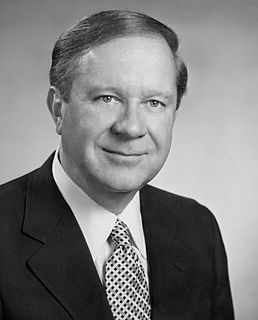A Quote by Russell B. Long
A tax loophole is something that benefits the other guy. If it benefits you, it is tax reform.
Related Quotes
Research has shown that middle-income wage earners would benefit most from a large reduction in corporate tax rates. The corporate tax is not a rich-man's tax. Corporations don't even pay it. They just pass the tax on in terms of lower wages and benefits, higher consumer prices, and less stockholder value.
We simply cannot continue to live with a [tax] system which has so many inequities. It must be changed in such a way that each of us pays a fair share of the burden. It has been said that one man's loophole is another man's livelihood. Even if this is true, it certainly is not fair, because the loophole-livelihood of those who are reaping undeserved benefits can be the economic noose of those who are paying more than they should.
I would favor three policies: raising the minimum wage to $12, closing the tax loophole where persons only pay a 15% income tax on long term capital gains (tax it at the full tax rate), and institute a progressive tax moving the highest tax rate from 39.6% to 45%. I would favor implementing these three policies in that order, starting with raising the minimum wage, but not stopping there.
Tax reform for the 21st century means rewarding hardworking families by closing unfair loopholes, lowering tax rates across the board, and simplifying the tax code dramatically. It demands reducing the tax burden on American businesses of all sizes so they can keep more of their income to invest in our communities.






























